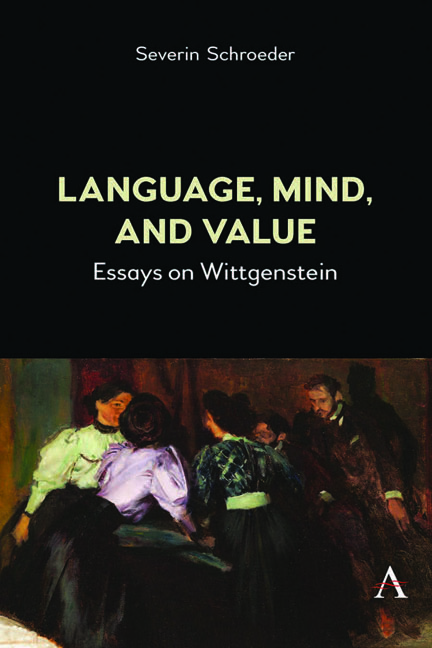8 - Moore’s Paradox and First-Person Authority
Published online by Cambridge University Press: 13 April 2024
Summary
‘It is raining and I don't believe it’
Moore's paradox is the observation that it makes no sense to say:
(1) It is raining and I don't believe it.
What is the point of Wittgenstein's discussion of this paradox in Chapter x of MS 144, published as Part II of the Philosophical Investigations? A first answer to this question might be given as follows: One of the leitmotifs of Wittgenstein's later philosophy is his critique of referentialism, the view that words have meaning in virtue of standing for objects, their reference (see Schroeder 2006, pp. 128–34). And Wittgenstein was particularly concerned with the application of referentialism to psychological language and the consequent view that words like ‘understand’, ‘think’, ‘pain’, ‘hope’, or ‘believe’ denote states or processes in the privacy of our minds (cf. PI §308). According to this – highly natural – view, one would be inclined to say that the statement:
(2) I believe that it's not raining.
was a description of the speaker's state of mind (PPF §86; p.190), whereas the statement:
(3) It is raining.
was a description of something entirely different namely the weather (cf. RPP I §819). So one should expect these two statements to be perfectly compatible, as descriptions of two logically independent subject matters.
Suppose ‘I believe it's going to rain’ meant: ‘When I say to myself the sentence “It's going to rain” it gives me a feeling of assurance’ …
If that were the case, Moore's paradox would not come about: I could then utter the assertion: ‘I believe it's going to rain; and it's not going to rain’. (MS 132, 98–99)
However, this conjunction is a sort of contradiction. So expressions of belief, such as (2), cannot be understood as merely descriptions of one's own state of mind. As a more plausible reading, Wittgenstein suggests that (2) is in fact used very much like the assertion:
(4) It is not raining.
In this case the introductory phrase ‘I believe that …’ is fairly unimportant (PPF §89; p. 190). It may be seen as a rhetorical device to attract attention to oneself as opposed to others, comparable to the preface: ‘If you want to know my opinion …’
- Type
- Chapter
- Information
- Language, Mind, and ValueEssays on Wittgenstein, pp. 109 - 122Publisher: Anthem PressPrint publication year: 2024

